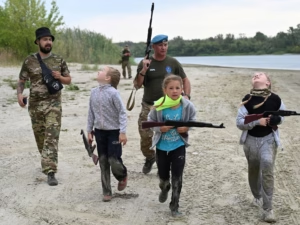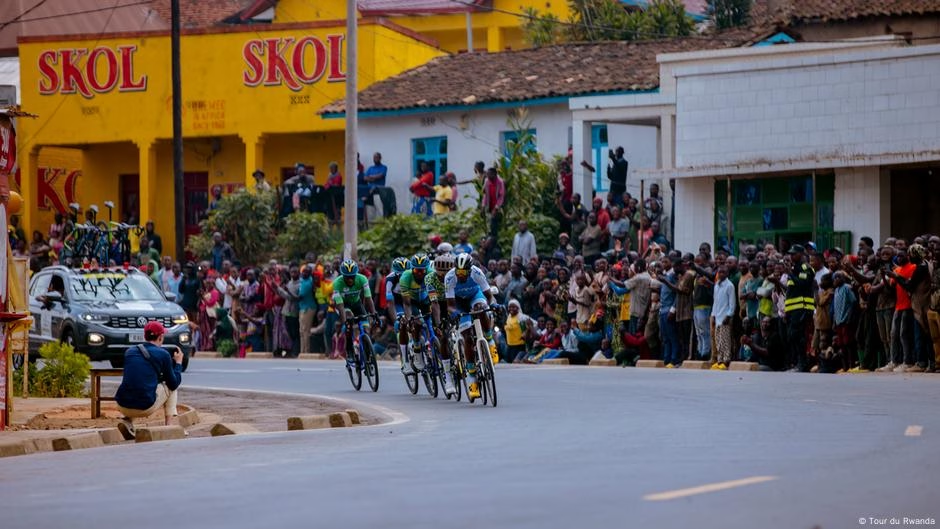The 2025 Tour du Rwanda took place amid this context. The eight-day event has been running since 1988 in a historic cycling nation. Star team Quick-Step withdrew, raising safety concerns, but the Tour went relatively smoothly, except for some drama on the seventh and final stage, where bad weather led to the race being canceled with just over 13 kilometers (eight miles) left.
Ecological consideration necessary
Matthias Schnapka, owner and founder of Bike Aid, a professional German team focusing on supporting African athletes, said the week was almost perfect from a sporting perspective. They were the fastest team, and rider Oliver Mattheis placed third overall.
Had it not been for the bad weather on the final stage, they might have even won the stage. Schnapka, who has been running Bike Aid since 2014 and raced worldwide, is not worried about safety in Rwanda, citing the isolating bubble of professional sports and the Tour du Rwanda’s high organization level.
“Cycling is our passion. We view it as a means to travel through a country. Our cyclists interact with the locals, bridging cultures.”
End of cycling in Africa
Despite this year’s Tour du Rwanda’s positive impact, some in the cycling world are concerned about September. The loss of the event could damage African cycling. Kimberly Coats, CEO of Team Africa Rising (TAR), worries about this, emphasizing the resilience of African riders and the fights they face daily.
Coats recalls a time when a lack of professional equipment made it difficult for African cyclists to compete, highlighting the deep-rooted prejudice these athletes face and urging for equal treatment.
Many African riders have made significant contributions and sacrifices for the sport, proving their competitiveness on global stages, contrary to the view of some who see Africa as dangerous or inferior.
Edited by: Chuck Penfold







